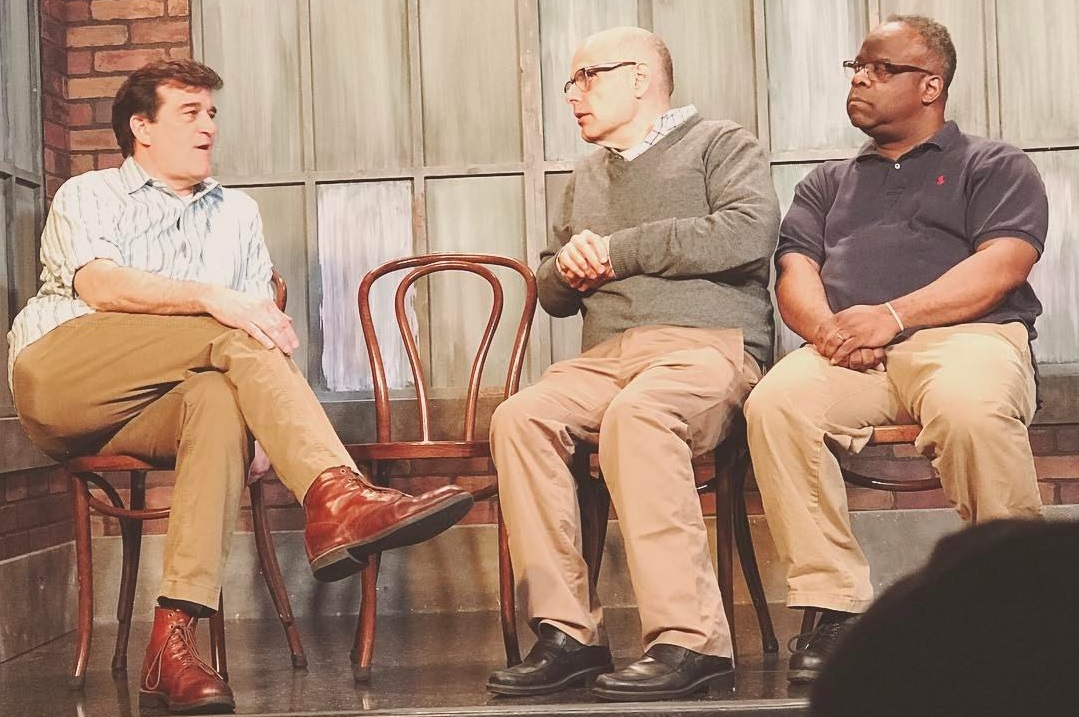It's OK to Make Adjustments in Your Improv Scene

A common thing that we hear in improv is that we need to commit in our scenes. This is true, but being committed in a scene doesn’t mean that we can’t make changes or adjustments to our characters as the scene is going along.
A good improviser is always adjusting in the moment, which includes their own choices that they make at the top of the scene. It’s totally fine if you start out with an Irish accent and slip into and Eastern European one, or you start out angry and you organically become sad, as long as you commit to the change and let go of your own judgement in your head. If you believe in what you’re doing, the audience will go along for the ride, too.
Accents are the most common adjustments for me in a scene. I cannot tell you how many times I have started a scene with a certain accent, and not only will the accent change as I go along, so will the attitude of the character. I have gotten more and more comfortable with that happening, and I’ve stopped beating myself up in the moment and started to just going with the flow.
Sometimes a player will call me out on my new accent and then I’ll have to justify it, and sometimes they won't. It doesn't matter. Yes, it is messy, and I’d rather be perfect throughout the scene, staying in my Irish accent the entire time. But ask yourself, “What is more fun: To play while trying to reproduce an accent that you dropped, or play with the one you transformed into using?”
Another thing I see a lot in my classes and workshops is students will start with a strong emotion at the top of the scene, say excitement, and then they will keep heightening and heightening the same emotion until there is nowhere to go. Since we typically do longer scenes in my class, it's clear that the student had many opportunities for his or her character to be affected emotionally by the other character and to change their emotion, but the player resists this, thinking they need to stay with one emotion.
When the scene is over, the student will say, "I thought I needed to be excited throughout the scene."
Many improvisers who are just starting out want to look at everything in black and white. But the last time I checked, improv is still an art, not a science.
In some cases, it may work for your character to stay with one emotion throughout the scene and in some cases, it won’t. This is where you need to start trusting your instincts and adjust if you need to. If you start out strong and you have nowhere to go, or you’re not having fun with your choice, adjust.
This same principle is true with object work and environment, too. Let’s say two people come out on stage and it’s clear they are in two different environments. One person makes the choice to be in a space ship and the other person is cutting grass. While you could try to incorporate both of these choices into a scene, it might work better to have one person drop their original choice and join the other person on the moon. Again, if you buy into it, the audience will buy into it.
Where you will get into trouble is when you think there is one way to play a scene, like there is some kind of formula. I have seen really experience players who have broken all kinds of rules and had wonderful scenes. Why? They are at that level where they trust their instincts.
Last month, in my Jimmy and Johnnie show, I played a mom in a scene, and the first couple of lines I said were kind of shocking things to get laughs. But I quickly realized I had misread the tone of the scene, so I needed to adjust quickly or I was going to die on stage. So instead of going for the laughs, I doubled down on heightening a version of my mom character. I focused more on how my mom character would respond honestly to what was happening. The adjustment was in my head, and the audience may not have even noticed it, but it was definitely more fun for me to play.
So be on the lookout for when you need to adjust your own choices at the top of scene, especially when they are not working.


Always happy to read your posts, Jimmy and super appreciative of your wisdom! I'm forever dropping accents, and have learned to 'go with it's and laugh at myself in the process;)